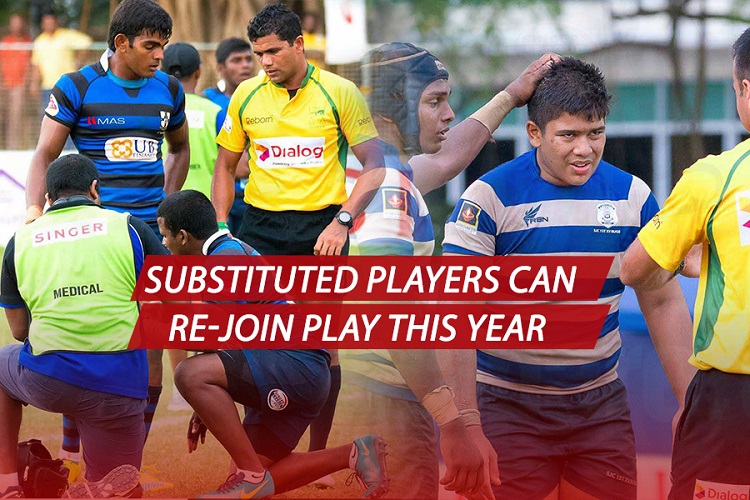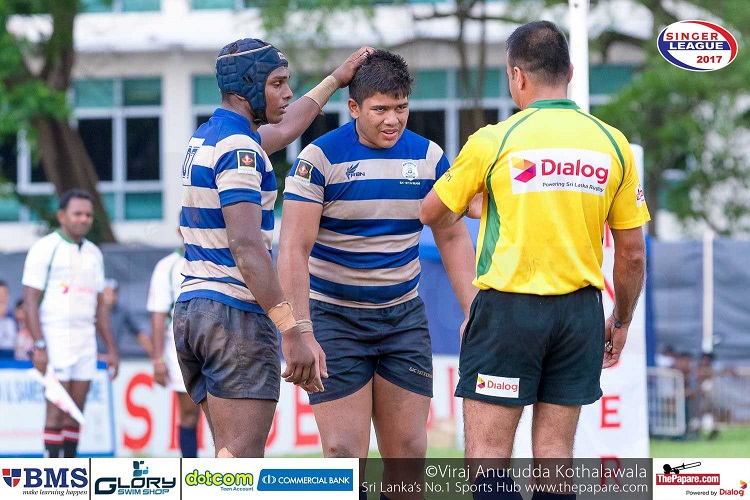
Read about the Under 19 Rule: Schools Rugby to switch to U19 format
The general rule for substitutes is that once a player has been substituted, he cannot be brought back in other than in four instances; (1) an injury to a front row player, (2) a player with a blood injury, (3) a player undertaking a head assessment injury (4) due to a player who has been injured due to a result of foul play.

Also Read: Royal off to a stellar start with bonus point win
With the rolling substitutes introduced, it means that players can be substituted for tactical purposes and not due to injury. This means that a player who started the game can be substituted during the match and later brought back to play. 12 occurrences of this nature can be entertained over the 70 minutes of play.
Royal v Kingswood | Match Centre | ThePapare Stats Centre
Match Centre for the Royal v Kingswood game of the Schools Rugby League….
The league that kicked off with the defending champions Royal College taking on Kingswood College saw the rolling substitute rule put to good use by both teams.
One of the prime intentions of the under 19 variant including the rolling substitute rule is, for player safety. This will also allow coaches to manage their units better and see an effective use of their replacements. The Schools Rugby League allows teams to have 25 players listed per game and with the substitutions; this is set to reduce the toll the game takes on players.

Rolling substitutes was first introduced in the Rugby League in the 1990’s and later in World Rugby, the sole governing body for rugby, who passed it on to the member unions to implement the rule in games within their jurisdiction (rule 3.15).
ThePapare Stats Centre; Find out what happened in the Schools Rugby. An in-depth look on the numbers and figures

















